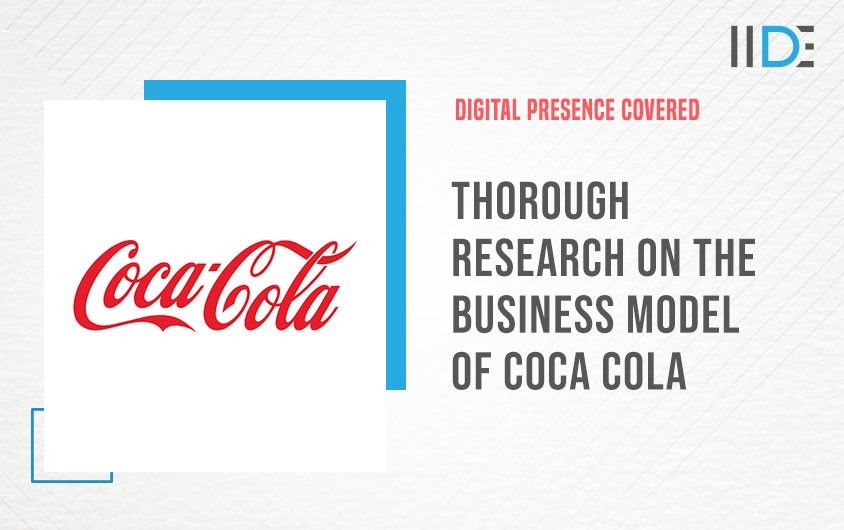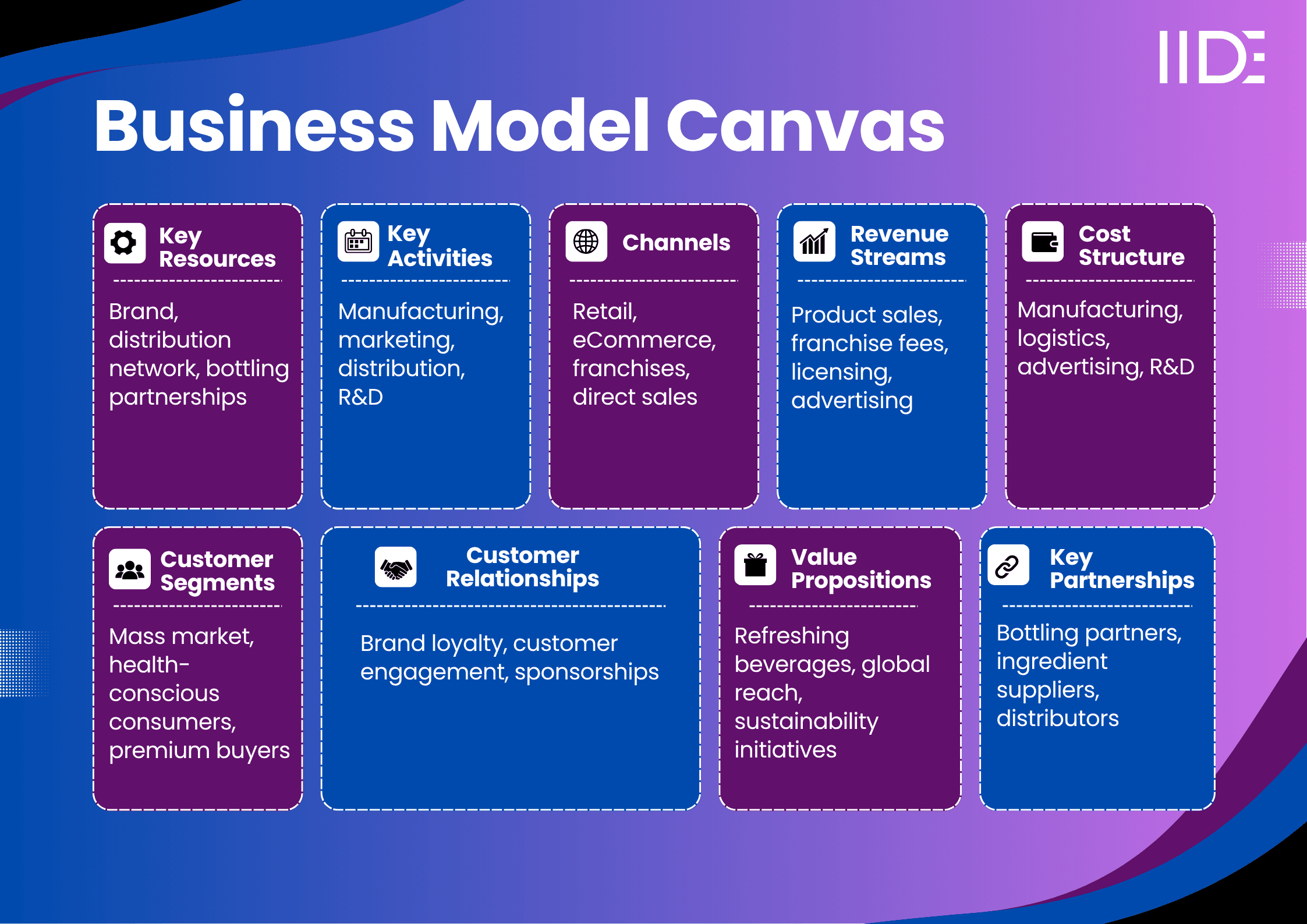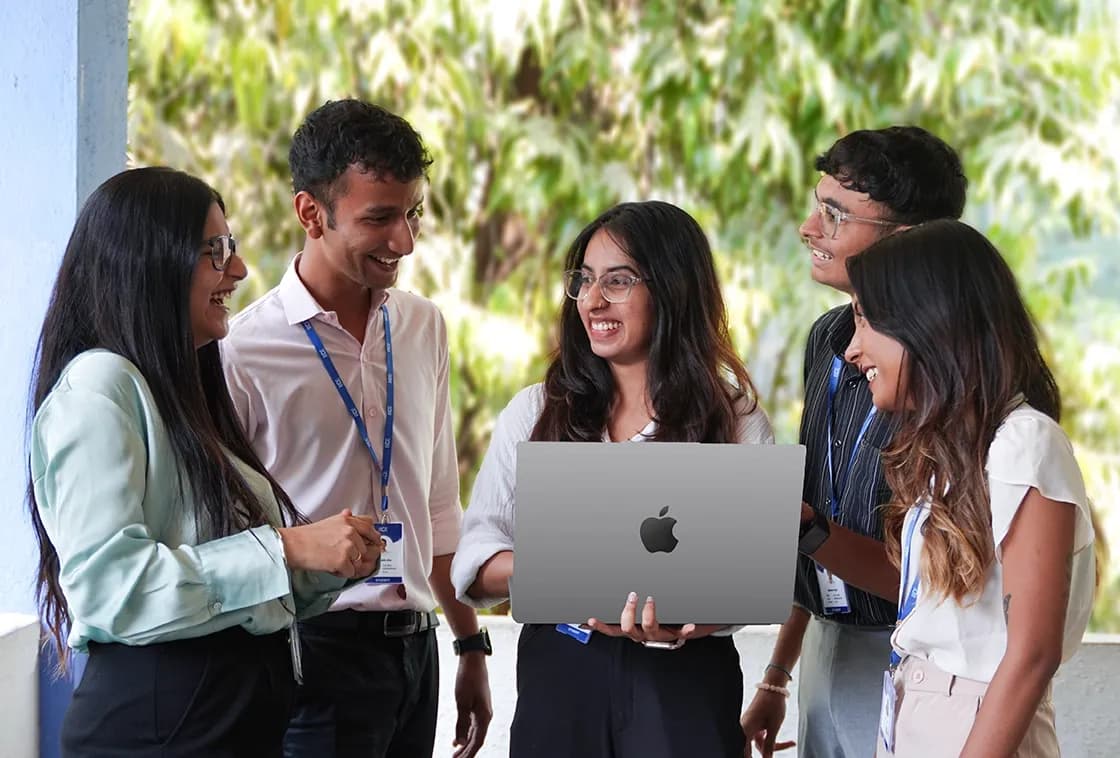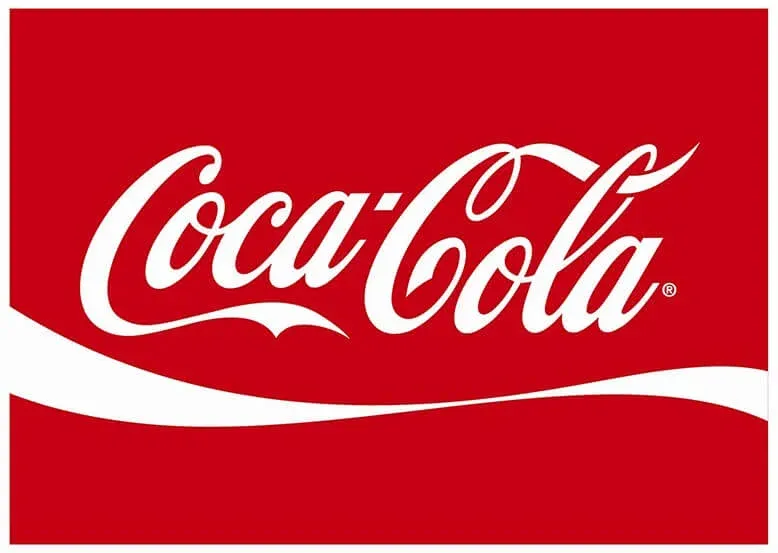
Updated on Dec 12, 2025
Share on:
Coca-Cola’s business model is built on a global distribution network, strong brand recognition, and diverse product offerings. The brand leverages strategic partnerships, cost-effective manufacturing, and targeted marketing to dominate the beverage industry. Coca-Cola’s model ensures high profit margins while maintaining market competitiveness.
Discover how Coca-Cola’s strategy fuels its success.
About Coca-Cola
Founded in 1886 by Dr. John Stith Pemberton, Coca-Cola has grown into the world’s leading beverage company. Known for its iconic soda, Coca-Cola has expanded into a vast portfolio of beverages, including juices, waters, and teas.
With a presence in over 200 countries, Coca-Cola generates billions in revenue annually, dominating the beverage market. The company's ethos revolves around refreshing the world and making a positive impact.
Coca-Cola’s customer experience is rooted in accessibility, delivering quality drinks globally, while continuously innovating in product offerings. The brand’s secret to success lies in its vast distribution network, market penetration, and focus on building brand loyalty.
Coca-Cola has maintained its market leader status through consistent innovation and an unwavering focus on customer satisfaction.
| Feature | Details |
|---|---|
| Founded | 1886 |
| Founder | Dr. John Stith Pemberton |
| Headquarters | Atlanta, Georgia, USA |
| Industry | Beverage (Soft Drinks, Non-Alcoholic) |
| Revenue (2023) | $46 billion |
| Presence | 200+ countries |
| Employees | 80,000+ |
| Popular for | Coca-Cola, Sprite, Fanta, Dasani |


Learn Digital Marketing for FREE


How does Coca-Cola make money?
1. Revenue Stream Breakdown:
- Product Sales: Coca-Cola’s primary revenue stream comes from its vast portfolio of soft drinks, bottled water, and other beverages
- Franchise Fees: Coca-Cola generates significant income from franchisees who distribute and sell the brand’s products
- Licensing: Licensing agreements also contribute, especially for branded merchandise
2. Revenue Contribution:
- Product Sales: 60% of revenue comes from the sale of beverages
- Franchise Fees: 30% of revenue is generated from franchising the production and distribution
- Licensing & Other: 10% comes from licensing and branded merchandise
3. Pricing Strategy:
Coca-Cola uses a premium pricing strategy, positioning its products as global staples while maintaining affordability across various markets.
The marketing mix of Coca-Cola dives deep into the brand’s strategy for product, price, place, and promotion, offering insights into how Coca-Cola drives its global reach.
Coca-Cola Business Model Canvas

Coca-Cola Value Proposition
Coca-Cola’s unique value lies in its ability to deliver a wide range of refreshing, globally recognised beverages. The brand offers consistency in taste, quality, and experience, ensuring that consumers around the world enjoy the same high-quality product.
Coca-Cola addresses key consumer needs, such as convenience, by offering a variety of drink options that are available almost anywhere. For health-conscious customers, Coca-Cola provides low-sugar and sugar-free variants to meet modern demands.
Beyond functional benefits, the emotional connection Coca-Cola fosters with its consumers, through campaigns like "Share a Coke," creates a sense of belonging and nostalgia. The brand also excels in sustainability, with initiatives such as recyclable packaging and reduced water usage in production.
Coca-Cola’s extensive distribution network ensures that its beverages are accessible, with new innovations like smart vending machines and personalised experiences enhancing the consumer journey. The secret to Coca-Cola’s success is its unmatched ability to stay relevant and cater to evolving consumer preferences across the globe.
Coca-Cola Cost Structure
Coca-Cola’s major expenses include manufacturing, logistics, marketing, and R&D. The company employs cost-saving strategies such as outsourcing bottling operations and automating production. Additionally, economies of scale from its global operations help keep per-unit costs low. Despite its significant advertising spend, Coca-Cola maintains strong profit margins by optimising supply chain efficiency and focusing on high-value markets.
Coca-Cola Customer Segment
Coca-Cola’s customer segments span a wide demographic, from young adults seeking an affordable beverage to health-conscious consumers looking for low-calorie options. The brand targets both B2C and B2B markets, with a strong emphasis on mass-market consumers and premium product buyers. Coca-Cola also appeals to early adopters interested in sustainable products, offering eco-friendly packaging and other innovations.
Distribution Channels of Coca-Cola
Coca-Cola operates through a mix of physical retail stores, eCommerce platforms, and franchised bottling partners. It follows an omnichannel distribution model, ensuring its products are available both online and in stores. Innovations like smart vending machines and mobile app-based ordering enhance the convenience of purchasing. Coca-Cola also partners with restaurants, convenience stores, and large retailers globally to ensure wide accessibility.
Coca-Cola Key Partnerships
Coca-Cola collaborates with numerous bottling partners, including Coca-Cola Enterprises, to manage production and distribution. Key tech partners help with customer relationship management (CRM) and app development. The company also maintains relationships with distributors, suppliers, and licensing partners, ensuring efficient supply chain management. Coca-Cola’s commitment to sustainability has led to partnerships with NGOs and environmental organisations to enhance its eco-friendly initiatives.
Pizza Hut’s SWOT analysis reveals strategies to tackle competition and leverage brand loyalty, which is highly relevant to Coca-Cola’s own positioning in the beverage market.
SWOT Analysis of Coca-Cola
| Strengths | Weaknesses | Opportunities | Threats |
|---|---|---|---|
| Strong brand loyalty | High dependency on sugary drinks | Expanding health-conscious product lines | Rising health concerns over sugary beverages |
| Global reach | High operational costs | Growth in emerging markets | Intense competition from PepsiCo |
| Diversified portfolio | Vulnerability to commodity price fluctuations | Sustainability-driven innovations | Regulatory challenges in key markets |
Coca-Cola Competitor Comparison
| Brand | Pricing | Customer Experience | Channel Strategy | Market Focus | Innovation |
|---|---|---|---|---|---|
| Coca-Cola | Premium | Global consistency | Omnichannel | Mass-market, premium | Sustainability initiatives |
| PepsiCo | Competitive | Value-driven | Omnichannel | Mass-market, youth-focused | Health-conscious products |
| Nestlé Waters | Premium | High-quality product focus | Physical retail, eCommerce | Health-conscious | Eco-friendly packaging |
What’s New With Coca-Cola?
Coca-Cola has invested heavily in digital initiatives such as AI-powered vending machines and personalised drink options through mobile apps. In line with sustainability goals, Coca-Cola is moving towards 100% recyclable packaging by 2026. Additionally, the company continues to innovate in its beverage offerings with low-sugar, plant-based, and functional beverages.
Key Takeaways for Students/Marketers
- Coca-Cola’s ability to scale globally is driven by its strong brand identity and extensive distribution network
- Small businesses can learn from Coca-Cola’s focus on consistency, customer loyalty, and product diversification
- Coca-Cola’s strategic thinking showcases the importance of balancing innovation with tradition, keeping consumer preferences at the core
Want to Know Why 2,50,000+ Students Trust Us?
Dive into the numbers that make us the #1 choice for career success

MBA - Level
Best For
Fresh Graduates
Mode of Learning
On Campus (Mumbai & Delhi)
Starts from
Mar 2, 2026
Duration
11 Months
Live & Online
Best For
Working Professionals
Mode of Learning
Online
Starts from
Feb 20, 2026
Duration
4-6 Months

Online
Best For
AI Enthusiasts
Mode of Learning
Online
Duration
5 Months

Offline
Best For
12th Passouts
Mode of Learning
On Campus (Mumbai)
Duration
3 Years
Recent Post
Coca Cola generates revenue through the sale of its beverages, direct sales to retailers, distributors, and its network of bottling partners, as well as licensing and franchising agreements.
Coca Cola’s main competitors include PepsiCo, Dr Pepper Snapple Group, Nestlé, Red Bull, and Unilever.
Coca Cola offers a wide range of beverages, including sparkling drinks, juices, dairy products, plant-based drinks, and hydration solutions like water and sports drinks.
Coca Cola markets its products through a mix of traditional advertising, digital marketing, experiential campaigns, and strategic sponsorships of major global events.
Coca Cola operates through a decentralized model, selling concentrate to bottling partners who handle production, packaging, and distribution.
Technological innovations include advanced manufacturing processes, data analytics, AI for quality control, and sustainable packaging solutions like PlantBottle.
Coca Cola engages in CSR through initiatives focused on sustainability, community engagement, health and wellness, and environmental stewardship.
Coca Cola has strategic partnerships with technology companies, foodservice chains, sports organizations, and bottling companies to drive growth and innovation.
Aditya Shastri leads the Business Development segment at IIDE and is a seasoned Content Marketing expert. With over a decade of experience, Aditya has trained more than 20,000 students and professionals in digital marketing, collaborating with prestigious institutions and corporations such as Jet Airways, Godrej Professionals, Pfizer, Mahindra Group, Publicis Worldwide, and many others. His ability to simplify complex marketing concepts, combined with his engaging teaching style, has earned him widespread admiration from students and professionals alike.
Aditya has spearheaded IIDE’s B2B growth, forging partnerships with over 40 higher education institutions across India to upskill students in digital marketing and business skills. As a visiting faculty member at top institutions like IIT Bhilai, Mithibai College, Amity University, and SRCC, he continues to influence the next generation of marketers.
Apart from his marketing expertise, Aditya is also a spiritual speaker, often traveling internationally to share insights on spirituality. His unique blend of digital marketing proficiency and spiritual wisdom makes him a highly respected figure in both fields.
